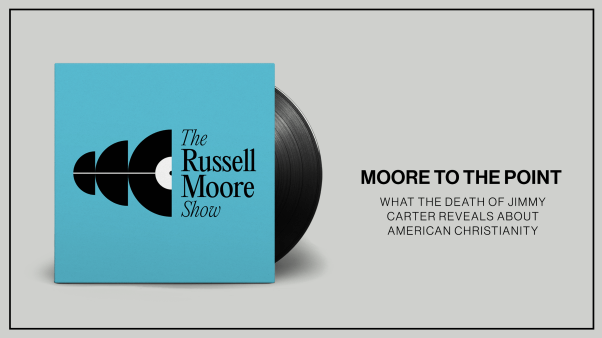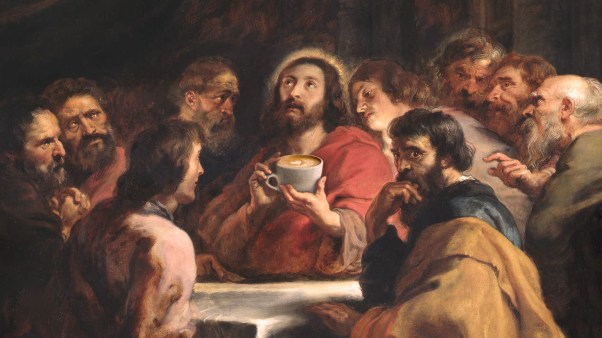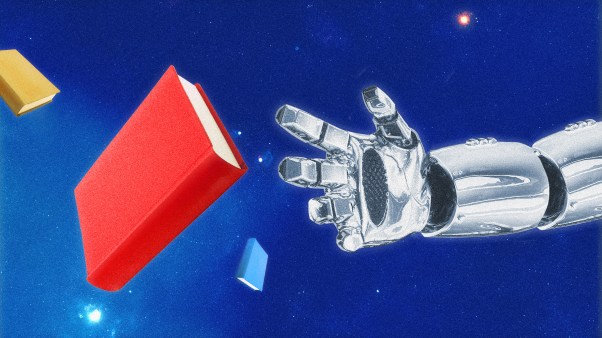Several months ago I was riding an elevator in Washington with a political commentator whose work I knew but whom I had never met. Reading my nametag, which I’d forgotten to remove after the event we’d just attended at the Ethics & Public Policy Center, he snorted and said “Books & Culture, huh? Well, I’ve published a few books, but I don’t know how much culture I have.”
It was a characteristic performance. This is America, after all, where no one bats an eye when the omni-intellectual David Gelernter publishes a piece in Commentary (March 1997) called “How the Intellectuals Took Over (and what to do about it).” Unless you’re addressing a university crowd, you can count on visceral approval from the audience whenever you express scorn for “the intellectuals”—and if the crowd is made up of evangelical Christians, the approval is likely to be thunderous.
But some of the scorn is earned. In response to John Brockman’s challenge to futurists (www.edge.org) to pose questions that “render visible the deeper meanings of our lives,” questions “that redefine who and what we are,” the same David Gelernter contributed this provocative response:
Why is religion so important to most Americans and so trivial to most intellectuals? Is it just a matter of IQ? (Though I thought intellectuals no longer believed in IQ … ) But empirically it can’t be an IQ issue, because so many of history’s greatest minds based their lives on religion—from Michaelangelo or Bach to Spinoza or Dante or Kant. Do modern intellectuals actually believe that all such people are naively deluded? Or could they be missing something themselves?
And in this issue (“Force of Habit,” p. 20), sociologist Christian Smith considers the prevailing hostility and condescension toward religion in the academy.
Since Books & Culture began publication in September 1995, we have been resisting both reflexive anti-intellectualism and the modish assumption that faith and reason are fundamentally incompatible. In that vein, we are introducing a new column, “The Groves of Academe,” which will explore the challenges of thinking Christianly.
We are deeply grateful that, beginning with this issue, Baylor University will be contributing to the support of the magazine. Under the direction of President Robert Sloan, a man who is not afraid to dream Texas-sized dreams, Baylor has aggressively set out to achieve a high-ranking national reputation for academic excellence while restoring the university’s historical Christian identity. The affinity with Books & Culture is obvious, and it’s no surprise that among the many outstanding professors lured to Waco in recent years are a number of regular B&C contributors, including two members of our editorial board, C. Stephen Evans and David Lyle Jeffrey.
Seven years ago, in an editor’s note to the magazine’s first issue, I began by quoting from an interview with the Native American poet Joy Harjo (whose latest book, published just last month, is How We Became Human: New and Selected Poems). That first issue isn’t currently available in our online archives, so please indulge me in quoting from it here; it seems relevant, seven years on.
“There no sense engaging evangelical Christianity,” Harjo had said. “You can’t engage something like that, because they don’t encourage interaction and thinking for yourself.” Having heard Harjo read her poems, I wished I could talk with her about her understanding of “evangelical Christianity.” Maybe, I thought, the first issue of Books & Culture would change her perception. (I don’t know if she ever received it.) But then again, maybe not:
Christians—not only the evangelical variety, but all those who affirm the central tenets of the faith—are distinguished precisely by their disbelief in the ability of humans to think for themselves. The more strenuously, the more proudly a person proclaims that freedom, the more surely, like Raskolnikov, he is in the grip of sin . …Welcome to the magazine for people who don’t think for themselves.
In short, we’re Sean Wilentz’s worst nightmare. (See Wilentz’s New York Times op-ed of July 8, “From Justice Scalia, a Chilling Vision of Religion’s Authority in America.”) But the recognition that our equipment is damaged and that we badly need help doesn’t mean that we stop thinking. Indeed, as David Jeffrey suggests on the facing page, that recognition is the beginning of wisdom.
Copyright © 2002 by the author or Christianity Today/Books & Culture magazine. Click here for reprint information on Books & Culture.








